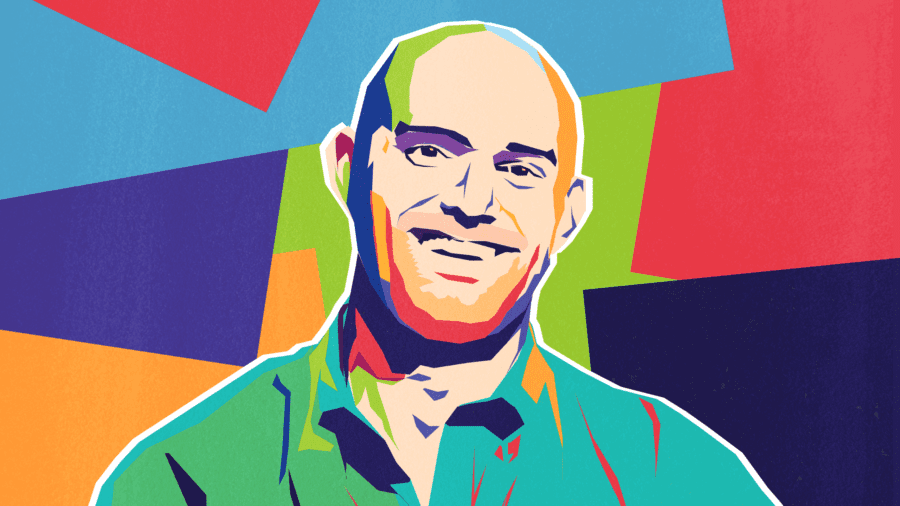
Do You Have to Be a Morning Person to Be Successful? Here’s What Both Sides Have to Say
Are you a morning person?
Maybe you were raised to believe the old adage, “Early to bed, early to rise,” and take it to heart. You make sure you’re in bed at a reasonable hour so that you can wake up and beat those who sleep in to the punch in order to be more successful than them.
Just like another established saying goes: “The early bird gets the worm.” So you rise and grind to maximize the time you have and get the most success from your efforts.
But do you have to be a morning person in order to be successful?
The hustling mentality has always been built around the image of getting to work before the sun has even come up. Whether it was our great-grandparents or grandparents working on the farm in the wee hours or our moms and dads making the early morning commute into work, it’s long been accepted that early risers get more done.
Join In 500 Million+ On The Journey to Greatness
There are some who would argue otherwise, though. In the post-internet age, there have been many people who have found success no matter what time they wake up. Being able to plug in at any hour of the day has led to a 24-hour work cycle that has changed the status quo.
So what’s the best time to wake up to achieve the goals you want?
Let’s take a look at a couple of different perspectives to see if what time your alarm goes off determines how successful you are.
Good Morning, People!
It seems like every time an article comes out about a successful person, they always say they get up at 4 A.M., eat a healthy breakfast, and then workout before getting their day started.
Actor Mark Wahlberg raised eyebrows in a 2018 Instagram post where he detailed his morning routine that started at 2:30 A.M.! His daily schedule put a whole new spin on rise and grind and left many wondering if finding success would require waking up at the same time they used to leave the bars during their college years.
It can’t be denied that there are a lot of benefits of waking up early. Unless you live alone, setting the alarm for an early hour can give you a chance to have some time for yourself. Getting up before your partner or kids can allow you a break from interruptions that can be used in any number of ways, from getting a workout in to simply enjoying some quiet time to mentally recharge.
Many early risers also tend to hit the bed at earlier times, too, in order to get enough sleep. As long as you’re getting up after a sufficient amount of rest, you’ll find yourself having more energy throughout the day. Adequate sleep time also helps prevent the onset of a lot of common sleep disorders, as well.
It’s possible to adapt your routine to enable yourself to wake up earlier beyond just setting the alarm for before the sun rises. Taking some simple steps can make the change less jarring, but they will still require a period of adjustment:
- Change your wake-up time gradually. Set your alarm 15 minutes earlier each day until you reach your target time to wake up without feeling as though you’re waking up tired.
- Motivate yourself with rewards. Positive reinforcement can work, even if you’re reinforcing yourself for changing! Use the extra time you’re gaining to get a cup of your favorite coffee from the local shop or hit the drive thru to treat yourself to a breakfast sandwich you wouldn’t have had time to pick up before adjusting your wake-up time.
- Get out of bed and the bedroom. Laying in bed or hanging out in the bedroom can tempt you to fall back to sleep and counteract the routine change you’re working toward.
- Avoid things that can hamper falling asleep. Using your phone or tablet to surf the web or play a game might seem to be a good way to wind down, but the blue light from device screens negatively affects our ability to fall asleep. Likewise, eating a big or spicy meal shortly before bedtime can prevent sleep by causing indigestion or other discomfort.
Getting into and following a routine is the biggest part of how to become an early riser. You just need to be mindful of what your body is telling you about the changes you make. If you’re continuing to struggle to wake earlier but you know it would make you feel better, you should be willing to adjust to getting up at the time you’re feeling at your best.
After all, even Mark Wahlberg realized he couldn’t keep setting the alarm for 2:30 A.M. and needed to adapt. Now he sleeps in until 3:30 A.M.!
You’re Just Not a Morning Person
Not everyone can wake up when the clock has a single digit hour on it or still reads “A.M.,” and that’s not a bad thing. In fact, while resetting your routine seems like just a matter of adjusting your schedule and behaviors and having the perseverance to follow through, it could actually do more harm than good.
According to some researchers, the circadian rhythms of our bodies aren’t to be ignored and have a lot of impact on our health if they’re upset. It’s also been found that these circadian rhythms are at least somewhat determined by our genetic makeup, meaning they are literally hardwired into our bodies.
If you’ve ever heard someone be referred to as “a night owl,” then you have met someone whose biological clock is in a different zone than that of a morning person. There’s nothing wrong with them, they’re just operating on a different schedule than what would be considered the norm.
Morning people tend to be more persistent, self-driven, and better planners according to studies. Apple CEO Tim Cook, Virgin founder Richard Branson, and even former First Lady Michelle Obama are all examples of successful early risers who set their alarms to get up before 6 AM.
But as Adam Grant put it, “The world’s most successful people aren’t worried about what time others wake up. They wake and work on the schedule that works for them.”
The late night crew tend to be more creative and perform better on tests measuring cognitive ability, memory, and the speed at which they process information. These people have also had more financial success than their renowned early-bird peers.
Given night owls’ propensity to be creative types, it’s not surprising to find that writers such as J.R.R. Tolkien, James Joyce, and Hunter S. Thompson, among others, started their days at whatever the hour was. Even political figures like former New York City mayor Bill de Blasio and late British Prime Minister Winston Churchill are known for their late start times.
Success Is About What You Accomplish, Not When You Do It
Success is a result of what you get done, not the time that you complete it. Some people operate better in the early part of the day and feel their most effective while others are still in bed sleeping. Some of those still snoring while the early birds are chasing worms do their best work while the first shift is winding down for the day.
So, is it better to get busy at the crack of dawn or when the sun is going down?
There is no right or wrong answer to that question. The only correct answer is to operate in a routine that works for you. The quality of sleep that you get is going to have a greater impact on your productivity than the time your alarm blares. Regardless of your sleep schedule, there are ways to ensure maximum productivity for yourself.
- Find the time that you feel most effective. Try waking up or going to bed at different times to see which one feels the best for you. Your body and mind will let you know by feeling more energized or more focused, so note those times and adjust your routine for the greatest benefits.
- Get good, restful sleep. Taking steps to have quality rest will increase your productivity. Avoiding using your phone at bedtime will help from overstimulating yourself when it’s time to wind down and get some sleep. Avoiding stimulants like caffeine or nicotine or eating a meal in the hours before turning in can also reduce the chance of disrupting your sleep.
- Establish consistency. It’s called a routine for a reason! If you don’t stay consistent in your schedule the majority of the time, your circadian rhythm will be all out of whack and you’ll struggle to feel effective. Inconsistency can also lead to you becoming more easily distracted from completing tasks and accomplishing goals.
The bottom line is this: Don’t be afraid to experiment in order to find what works best for you to operate at your highest level. It’s a 24-hour world, which means anything can happen at any time of the day!
Want to Make the Most Out of Every Hour?
Everyone wants to maximize their time, whether it’s to find greater success or increase their enjoyment of outside pursuits. At Greatness, we want to help you get the most from your day.
If you’re a morning person who wants to get every day off to the best start possible, read our article, “How to Create the PERFECT MORNING Routine for SUCCESS!” for an in-depth guide. You can also check out “7 Morning Rituals to Improve Your Mornings” to hear about some of our favorite ways to start the day.
Not a morning person? We’ve still got you covered! Arianna Huffington discusses how important she thinks good sleep is to finding success here.
No matter what your hours of operation might be, make sure they’re great!
Greatness Authors
Greatness Authors is a collection of writers, thinkers, curiosity experts, and students of the world who are committed to bringing you the most up-to-date, impactful, and inspiring information surrounding Greatness topics.

9 Reasons You’re Tired All the Time & How to 10x Your Energy

How to Have a Healthy Romantic Relationship Even if You Share Different Beliefs

The 7 Best Vitamins to Naturally Promote Better, Uninterrupted Sleep According to Shawn Stevenson

The Science of Forming Healthy Habits & Letting Go of Bad Ones, According to Author James Clear

The Secret of Sourdough: Why This Bread Is Actually Great for Your Gut (Plus, How to Make Your Own!










